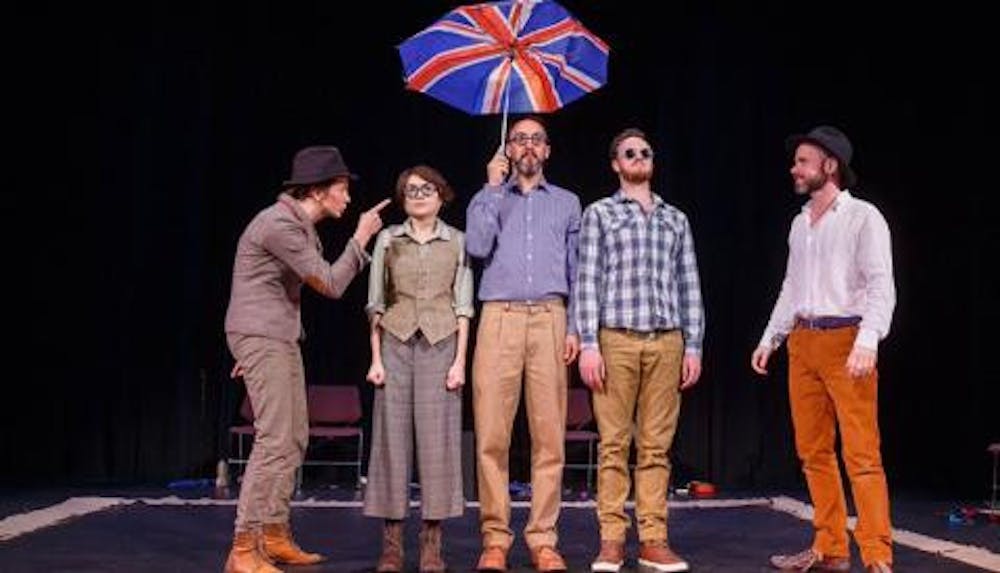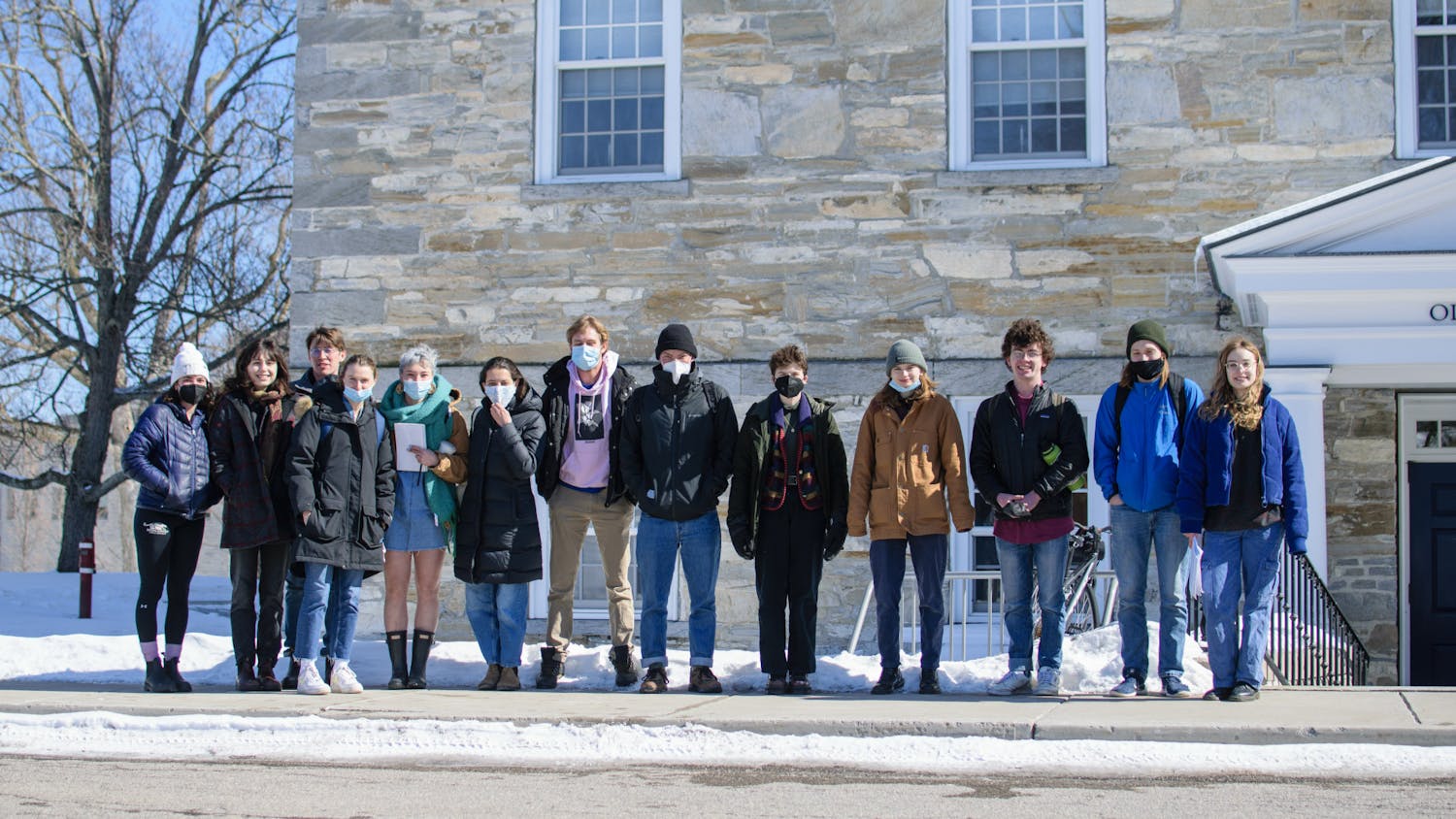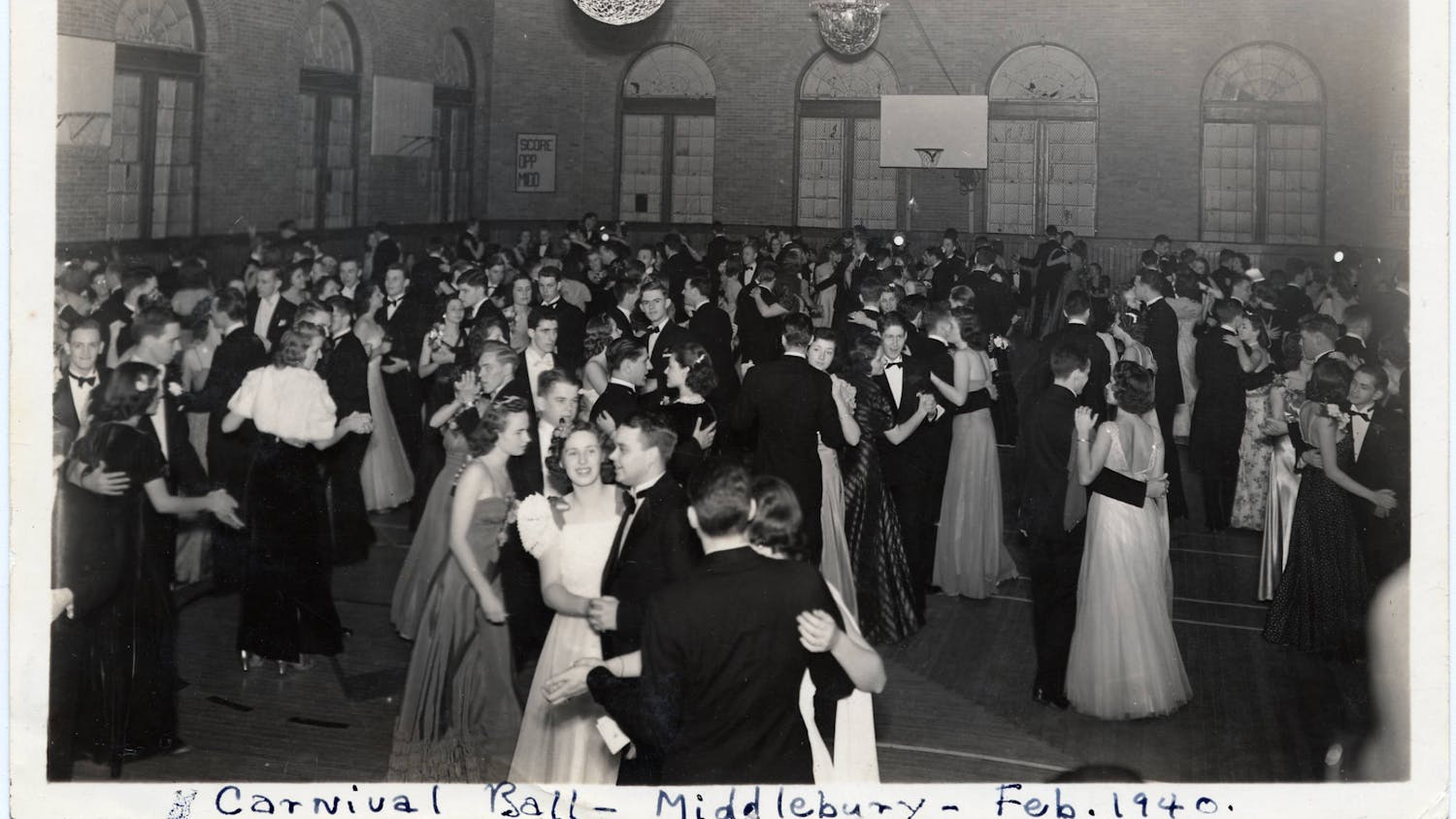This past weekend, the Actors from the London Stage (AFTLS) visited Middlebury to put on a production of William Shakespeare’s “Much Ado About Nothing” in Wright Memorial Theatre.
Founded over forty years ago by a group of actors including Sir Patrick Stewart, AFTLS is one of the oldest touring Shakespeare troupes. Unlike in a traditional production, the cast is composed solely of five actors, meaning that each must take on multiple roles in the same performance. The acting company takes Shakespeare plays out of their original settings, giving plain clothed actors three hours to see what they can do with a Shakespearean script and their own ideas. The actors rarely, if ever, leave the stage, resulting in an intense and constantly engaging performance for both the audience and the performers.
“Once you’re on, you’re on,” actor Chris Donnelly said in an email interview with The Campus. “It is a more demanding exercise to be constantly shifting from one character to another — psychologically, physically and vocally.”
Since the group does not have a traditional director, the actors themselves collaborate to determine staging and the direction in which they want to take the show. This directing democracy gives the troupe the ability to make creative decisions that still engage a modern audience.
The troupe has reimagined Shakespeare’s work for a contemporary audience by highlighting the physical comedy and irreverence that often gets lost when reading his plays straight from the page. For instance, there were at least five contemporary songs used as transitions within the show, from the Ronettes’ “Chapel of Love” to Queen’s “Somebody to Love,” as well as cheeky moments when actors broke the fourth wall.
Despite there being only five actors in a play with 23 roles, it was easy to differentiate between the characters and their personalities, using glasses, hats, and canes rather than formal costume changes to help distinguish the characters. The only downside of the cast size was that because Hero and her father Leonato were played by the same person, it often caused Hero to be invisible in scenes where she had no lines but clearly would have been contributing to the performance nonverbally. That being said, the performance swept the audience away — resulting in the actors returning to the stage twice to continued applause after they took their initial bows. The size of the cast and the lack of a traditional set ultimately allowed for the actors’ talent and range to shine all the more brightly.
“I think our job as actors performing Shakespeare is to make sure the 500+ year-old text can still be understood and enjoyed today. When that happens, it’s a magic moment,” AFTLS actor Annabelle Terry said.
Watching the show even centuries after it was written, audiences will find that these ancient characters are still relatable and relevant. “Much Ado” is one of Shakespeare’s most popular comedies, and, after watching it, it makes sense why. In many ways, it’s the original romcom. Benedick and Beatrice’s masterful verbal sparring and wordplay is incredible to watch, especially when portrayed by actors talented enough to capture the subtext and flirtation embedded within their fights.
All of the actors agree that one of the most important scenes in the show is the wedding scene, which was particularly challenging to stage with so few bodies. “Having to keep the story afloat in such a serious moment meant that we had to work really hard to keep all the characters alive. It is also important for the scene to have gravitas. It is the turning point of the play,” said AFTLS actor Katherine Newman.
The range of characters and emotions that each actor has to portray makes performing the show a daunting but rewarding task. “Every character has a moment I love to portray on stage,” said actor Will Donaldson when asked if he had a favorite character. Donaldson plays Claudio, Borachio, Antonio and Margaret in the production, but if forced to pick one, he would settle on Margaret.
“She is pure drag, but she still has a heart and a sensitivity that I find really endearing. She's a pure expression of all the exuberance and mischief in my heart,” said Donaldson.
The actors also spent time during the week leading up to the performances workshopping with 14 Middlebury classes across seven departments. They led movement workshops with some acting classes, read drafts of student plays, and had discussions with gender studies classes.
One of the major strengths of the AFTLS is being able to make classic works like Shakespeare feel captivating and current to today’s audiences. The group’s emphasis on touring colleges and universities to work directly with students gives the troupe the unique ability to use Shakespeare as a launching point to engage young people with performance in all its senses. Middlebury students will find that the AFTLS approach to performance not only elevates the themes and topics touched on by Shakespeare, but also those that they tackle every day in the classroom.
Students can follow AFTLS on any and all socials to keep up to date with all future tours.

Olivia Mueller '24 (she/her) is a News Editor.
Previously an Arts and Culture editor, Olivia is an International Politics and Economics major with a Spanish minor. Outside of the Campus, she is a spin instructor for YouPower, an avid runner and hiker, and a member of the Middlebury Mischords a cappella group.

Acadia Klepeis ’24 (she/her) is an Arts & Culture Editor.
She is an English major and a French and Francophone Studies minor. Last year, Cadi studied literature in Paris and in Oxford through Middlebury’s school abroad programs. She spent this past summer working as a communications intern for the Vermont Arts Council. Previously, she completed internships with Tuttle Publishing, Theatre in Paris, and Town Hall Theater. Cadi is also on the board for Middlebury College Musical Theatre.




